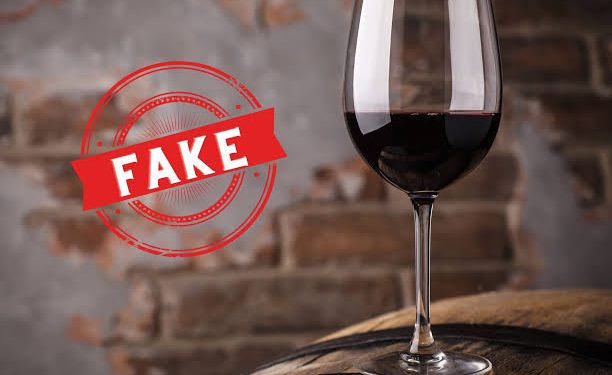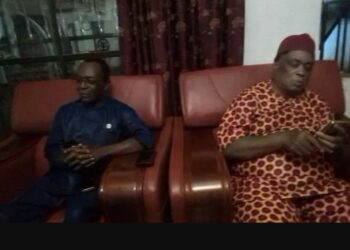A wine dealer has suggested how Nigerian consumers can detect fake drinks in the market.
Nestor Udoh, who runs a wine shop confitmed that the barcode in every drink provides a unique way to find out if a drink is original or fake.
“You see this barcode,” Mr Udoh said while pointing to a barcode on a bottle of wine he picked up near his table, in the wine shop.
“If you scan this barcode with a barcode scanner it will bring out information such as the name of the company which produced the drink, the whole process, and other relevant information about the drink. But if you scan a fake one, it will not bring out anything.
Barcode, according to the Oxford Dictionary, is “a machine-readable code in the form of numbers and a pattern of parallel lines of varying widths, printed on a commodity and used especially for stock control.”
Mr Udoh said most Nigerian consumers are not aware of the importance of barcodes on products.
Besides scanning the barcode, Mr Udoh said his shop carries out two other steps to check if a wine is original or not.
“I still call in NAFDAC for them to come and check the drinks. You know NAFDAC has a way of tasting to know if a product is fake or not.
“Of course, when I started, I spotted a few fake ones, possibly someone sneaked them into it (consignment) when they were loading them (at the supply point).
“The people that are supplying us, I sent out a message a long time ago, if I spot any fake drink from your consignment I will not buy from you again. So, when they are packaging our products, they make sure fake ones don’t enter.

“I also bring in people for wine tasting if a company is introducing a new product and we want to stock it in our shop. You see, when you are tasting for a fake wine, you do it in all ramifications. Even the taste of a wine can tell you if it’s fake or not,” he said.
Mr Udoh is a retired medical doctor and when asked what prompted him to fo into wine business said
“A lot of people think I am just selling wine to make money. No, it is not true,”
“One day I visited my friend at a University Teaching Hospital, and I discovered that the number of people that were cueing for renal dialysis was high. So, I asked him why the number wasn’t this much when we were much younger, and what exactly was happening. He told me it had to do with the fake things in the market, the fake food, and the fake drinks that are damaging people’s kidneys.
“So, I said let me do something that can give people an alternative to fake, that it could be another way of practising preventive medicine. Alcohol is not a good thing to take, but it is worse when you go and take fake alcohol.
“Those who produce fake drinks, most often use methanol which is used to produce methylated spirit of which they write on the body that it’s for external use only. They go for methanol because it’s cheaper than ethanol which is used in producing drinks. Methanol is very toxic, it damages the kidney.
“I did a sensitisation on radio on why people should be careful about what they were drinking before I ventured into starting a wine shop,” he said.






